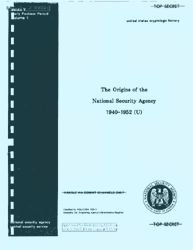The last stream of translations of Greek philosophical works can be located toward the middle of the tenth century, and took place in an intellectual climate different from that of the early ‘Abbasid Caliphate on several counts. First, the broader context of Muslim urban society, especially in the capital Baghdad, had changed: even though the ‘Abbasids were officially still in power, their leadership was on the decline and the empire was de facto dismembered: in 945, a new dynasty entered Baghdad from northern Iran, the Buyids, of Shl'ite allegiance (see Kraemer 1992). Second, the Ash'arite kalam (named after Abu Hasan al-Ash'arite, d. 935) had supplanted Mu‘tazilism in Sunni theology (see the entry Kalam in this volume), establishing the tenet that God’s nature and decrees cannot be scrutinized by man’s reason, to the point that the Ash'arite theologians (mutakallimUn) maintained that God could without contradiction punish those who did obey all his commands. Third, the various linguistic and religious sciences, mostly grammar and law (not to mention the hadlth literature) had reached such a high level of refinement, that their specialists considered the foreign sciences and their literary genre - the philosophical treatise - as intruders whose pretensions were not supported by an adequate command of true knowledge. This is apparent in the famous argument that occurred at the court of the Buyid vizier Ibn al-Furat, between Abu Bishr Matta (d. 940), the head of the Aristotelian circle of Baghdad, and Abu Sa‘ld al-SirafI (d. 979), the most illustrious belletrist of his time and the commentator of Sibawayh’s Kitab, the authoritative textbook of Arabic grammar. The focus of the argument was about the claim for the universality of Aristotelian logic on the one hand, and the impossibility to go beyond the limits of every natural language, on the other. Should logic prevail over grammar, as contended by Abua Bishr Mattaa, translations would be possible and welcomed; should the linguistic boundaries be insurmountable, as contended by Abu Sa‘ld al-SirafI, the assimilation of Greek thought would be pointless (see Elamrani Jamal 1983; Endress 1986; Ouyang 1997:23-54). The literate and philosopher al-Tawltldl, to whom we owe the record of the dispute, depicts Abu Sa‘ld al-SirafI as gaining the upper hand, and it has convincingly been argued that al-Farabl’s philosophy of language, as well as his endeavor to build up a systematic structure of knowledge, counts as an attempt at providing the philosophic community with an adequate reply to this defeat (see Martini Bonadeo 2008). To this picture another element should be added, namely the increasing concentration of the philosophical studies on the interpretation of the Aristotelian corpus. The Baghdad philosophers devoted themselves to the scholastic practice of searching and studying ancient commentaries, analyzing Aristotle’s texts and commenting upon them. Two outstanding examples of this practice are the ‘‘Organon of Baghdad’’ (see Hugonnard-Roche 1993) and a MS of Aristotle’s Physics housed in Leiden that, like the ‘‘Organon of Baghdad,’’ bears the traces of a detailed analysis based on both Greek and Arabic commentaries (see Giannakis 1993).
The translations produced by the Baghdad Aristotelians of the tenth century include, in addition to a single work by Plato and several works by Aristotle, writings by Theophrastus, Nicolaus Damascenus, Alexander of Aphrodisias, Themistius, possibly Proclus, Simplicius, and Olympiodorus.




 World History
World History









